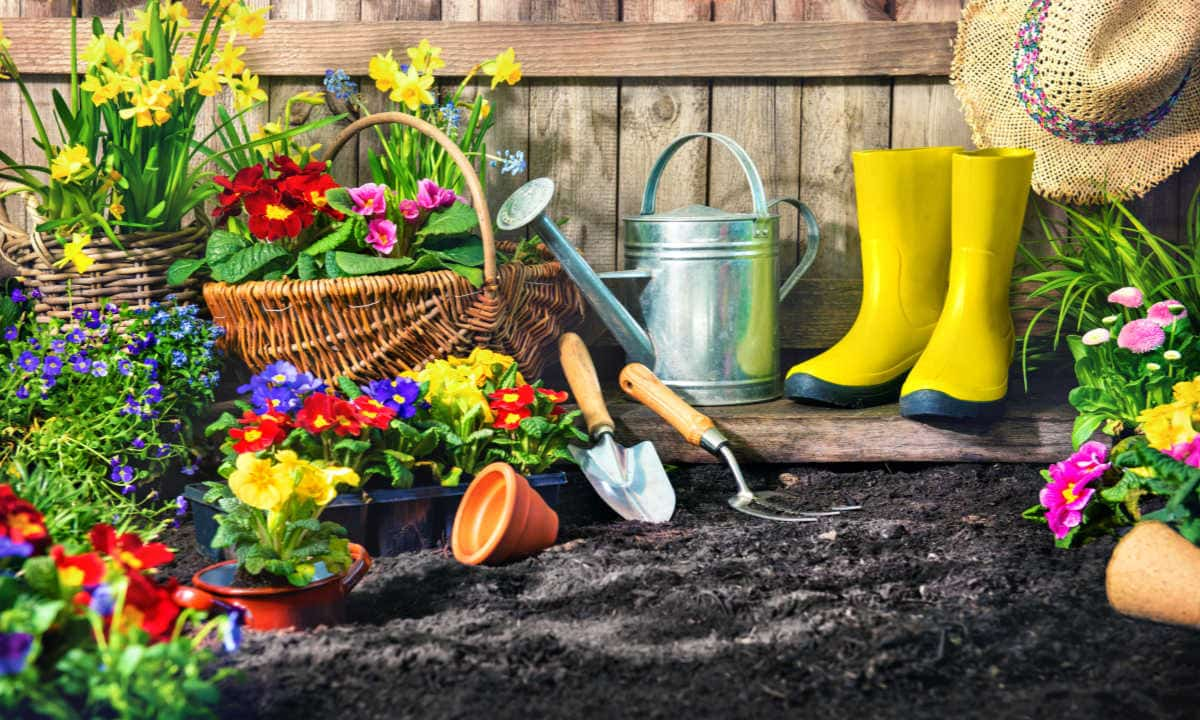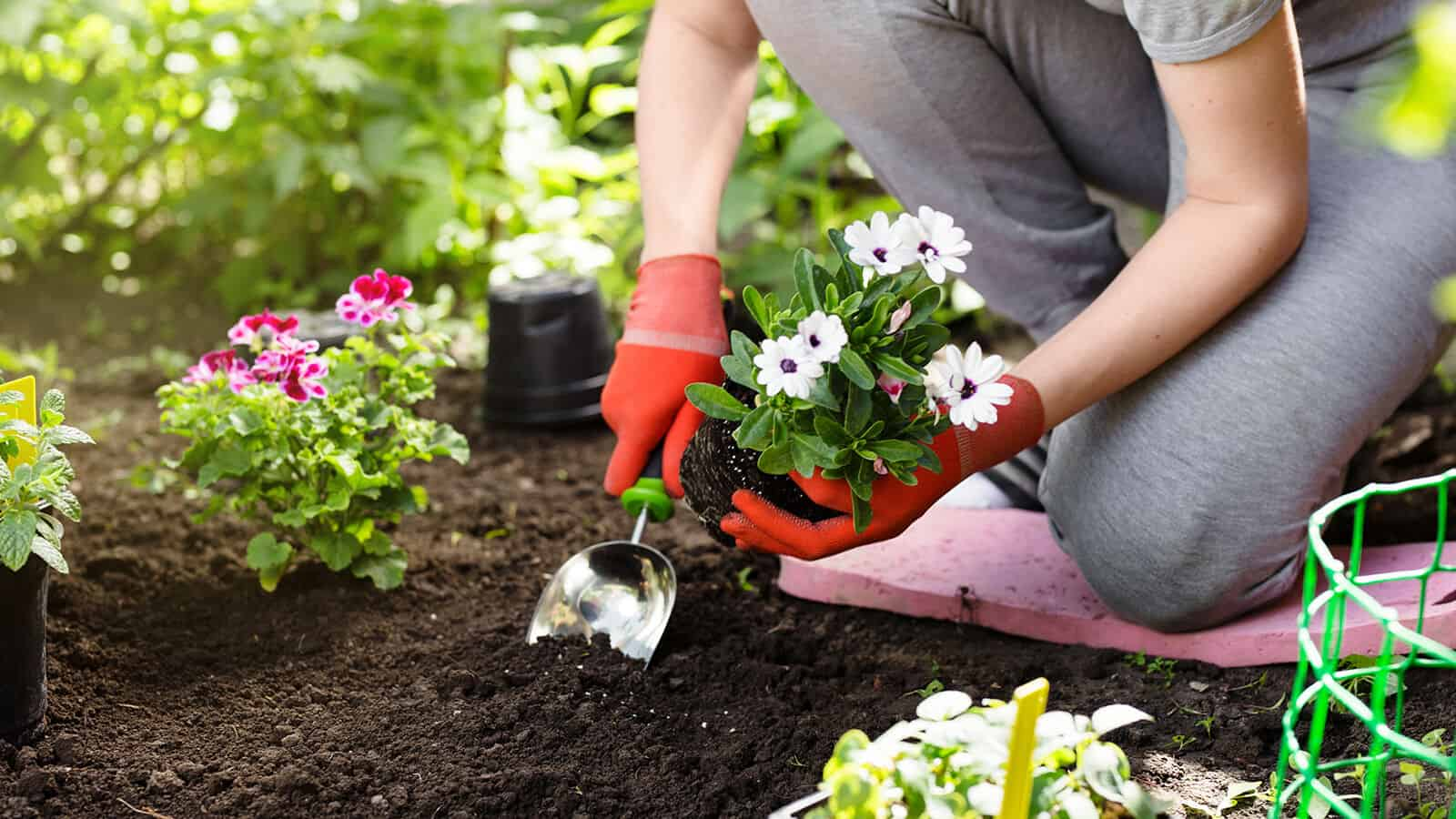
The results of a large number of studies now show that gardeners have known for generations that gardening is good for your health.
Now more important than ever, as our culture becomes more obsessed with technology and deprived of nature more and more serious, this information is essential for digestion and acceptance. Why? Because our country is in a national health crisis with major economic and social impact.
Here are some statistics that can prove this:
- The U.S. public spends more than 90% of their time indoors, leading an extremely sedentary, disconnected, unhealthy, and unnatural lifestyle.
- The latest statistics show that 33% of U.S. adults are obese, incurring $148 billion in medical costs annually and contributing to 18% of U.S. adult deaths.
- Publicly available data shows U.S. healthcare costs are the highest per capita in the world—and that amount continues to increase.
- Recent research funded by Disney shows that 65% of U.S. parents see it as a “very serious” problem that their kids are not spending more time outdoors. According to the survey, this is equal or a close second to their concerns about bullying, the quality of education, and obesity. Preschoolers spend about 12 hours a week outside, and by the age of 16, our children are spending less than 7 hours a week in nature.
13 reasons why gardening is good for health
1. Gardening can reduce your risk of stroke (along with other activities as jogging and swimming) as reported in “Stroke: Journal of The American Heart Association”.
2. Gardening burns calories.
Gardening is considered moderate to high intensity exercise. According to the Centers for Disease Control and Prevention, in just one hour of light gardening and yard work, you can burn up to 330 calories-more than lifting weights in the same amount of time. The National Institutes of Health even recommends gardening for 30 to 45 minutes three to five times a week as part of a good strategy. If this is something you are interested in and your garden needs some TLC, don't be afraid! You can buy any appliances and tools you need from https://buyersimpact.co.uk and other places.
3. Heavy gardening not only helps maintain weight, it also helps reduce the risk of heart disease and other life-threatening diseases.
Only 30 minutes of moderate-intensity physical activity several times a week can prevent and control high blood pressure. In fact, horticulture occupies a place on the National Heart, Lung and Blood Institute's recommended list for combating hypertension.
4. Gardening reduces the possibility of osteoporosis.
When you dig, plant, weed, and perform repetitive tasks that require strength or stretching, all major muscle groups are well exercised.
5. Gardening is a stress buster.
In fact, it may be more effective at eliminating stress than other leisure activities. In a study in the Netherlands (according to CNN), two groups of students were told to read indoors or in the garden for 30 minutes after completing a stressful task. According to reports, the gardening group is in a better mood than the reading group. They also showed lower levels of cortisol, the stress hormone. Considering that cannabis plants can be grown in your garden without maintenance, this is a good link and at the same time provides you with two compounds that can also reduce stress and have many other health benefits, you can consider buying them thanks to these cbdMD coupons
some cheap CBD.
6. Being surrounded by flowers improves one’s health.
In behavioral research conducted at Rutgers University by Jeanette M. Haviland-Jones, Ph.D., the results showed that flowers are a natural and healthful moderator of moods and have an immediate impact on happiness, a long term positive effects on mood, and make for more intimate connections between individuals
7. Gardening is a way of making meaning out of our lives.
Being in the garden and feeling a profound connection to the land affords us the opportunity to focus on beauty and inspires us to experience feelings of awe, gratitude, and abundance.
8. The act of gardening enables us to enter the ‘zone’, also known as an altered state of consciousness – similar to what a jogger or one who practices yoga or mediation can experience.
This transcendent state is a magical and spiritual place where one experiences the best of who she/he is.
9. It is likely that gardening and flowers serve as a means for survival; or in Darwinian terms, ‘survival of the fittest’.
For more than 5000 years, people have cultivated flowers. There must be a reason why this practice continues to exist. As Michael Pollan has written, “It was the flower that first ushered the idea of beauty into the world the moment, long ago, when floral attraction emerged as an evolutionary strategy.”
10. Digging in the soil has actual health and ‘mood boosting’ benefits.
Larry Dossey, M.D. who wrote the new foreword for The New Revised Edition of Digging Deep and author of One Mind: How Our Individual Mind is Part of a Great Consciousness and Why It Matters writes: “The importance of gardening and “digging deep” is written into our physiology. Evidence for what’s called the “hygiene hypotheses” is abundant. Briefly, we know that children who are exposed to dirt in the formative years develop healthier, stronger immune systems when compared to children whose parents keep them squeaky clean, and they have a lower incidence of asthma, eczema and allergies later in life. Exposure to dirt in childhood promotes good health.”
Christopher Lowry, Ph.D., an assistant professor of integrative physiology at the University of Colorado at Boulder, has been injecting mice with Mycobacterium vaccae, a harmless bacteria commonly found in soil, and has found that they increase the release and metabolism of serotonin in parts of the brain that control cognitive function and mood — much like serotonin-boosting antidepressant drugs do.
11. Gardening Improves Relationships and Compassion.
Research shows that people who spend extended lengths of time around plants tend to have better relationships with others. “This is due to measurable increases in feelings of compassion; another effect of exposure to ornamental plants. Studies have shown that people who spend more time around plants are much more likely to try and help others, and often have more advanced social relationships. People who care for nature are more likely to care for others, reaching out to their peers and forming shared bonds resulting from their common interests. Extended exposure to nature and wildlife increases people’s compassion for each other as it increases people’s compassion for the environment in which they live. In short, being around plants can help to improve relationships between people and increase their concern and empathy toward others.”
12. Gardening can reduce the risk of dementia.
Some studies have shown that physical activities related to gardening can help reduce the risk of dementia. Two independent studies conducted a 16-year follow-up survey on people in their 60s and 70s, respectively, and found that the risk of dementia for people who regularly garden is 36% and 47% lower than that of non-gardeners. Even taking into account a series of other health factors. The effects of dementia can change lives, so prevention is very important.
13. Gardening can strengthen your immune system.
When you are outdoors in the sun, you also absorb a lot of vitamin D, which helps your body absorb calcium. In turn, calcium helps maintain strong bones and a healthy immune system.
ADS





